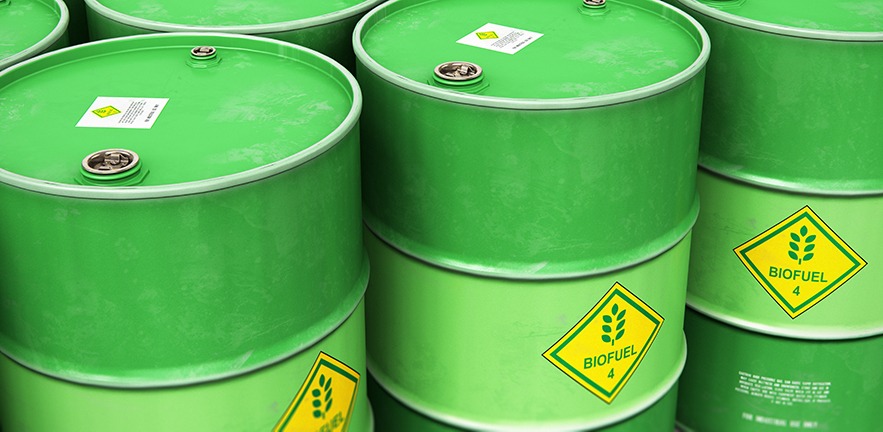Karl W. Feilder of biofuels producer Neutral Fuels talks to Dr David Reiner of Cambridge Judge Business School about sustainability and turning cooking oil to fuel.
Over the past decade, Dubai-based Neutral Fuels has pioneered commercial biofuel production in the Middle East and currently operates the largest group of biofuel facilities in the Gulf region.
Karl W. Feilder, founder, CEO and Chairman of Neutral Fuels, recalls that when he contemplated setting up in the oil-rich United Arab Emirates to recycle cooking oil into biofuel, some people laughed and said: “You’ve got to be mad. You want to come to the fossil-fuel capital of the world and do something that isn’t fossil fuel. And I said, ‘Yes, I really do.’”
Karl Feilder was interviewed by Dr David Reiner, University Senior Lecturer in Technology Policy at Cambridge Judge Business School and Assistant Director of the Energy Policy Research Group (EPRG), for the latest in a webinar series – “CJBS Perspectives: Leadership in Unprecedented Times”, a series of talks and presentations from exceptional leaders, faculty and alumni, born of the challenging times in which we all currently find ourselves.
The series, which is organised by the Alumni & External Engagement and Executive Education teams at Cambridge Judge, brings together senior leaders together with CJBS faculty to discuss business trends and observations they have learned during this global pandemic in various sectors and geographies.
Here are some edited excerpts of the discussion between Karl and David about biofuel and the importance of building a sustainable future, the impact of COVID-19 on sustainability, and the role universities play in the energy sector.
David Reiner: “How did this idea of recycling cooking oils into biofuel come about?”
Karl W. Feilder: “I’m originally an engineer and also have an MBA. I put together a team in 2006 after a successful career in the IT industry, and decided I would spend the rest of my career trying to save the planet.
“The team looked at the chemistry of cooking oils. Neutral Fuels are sourcing directly from restaurants, so we are able to optimise the chemistry because we know exactly what is in every batch. It all started with McDonald’s where one of my other group companies did a project looking at the company’s carbon footprint in 37 countries. We discovered they could be self-sufficient in fuel in their supply chain if only they could work out how to recycle their cooking oil into a biofuel.
“The leadership team suggested we tried the UAE for the project, because ‘if it works there, then it will work anywhere’. So I went to the Dubai government and said you really need a biofuel industry here and they helped us. We had to get a new licence created for something that didn’t exist before, and that meant explaining to people what biofuel is and why they should grant the licence. We created a disruptive business model based on a closed loop circular economy – another first in the region.”
David Reiner: “Is there an effect that biofuel is having on the palm oil industry?”
Karl W. Feilder: “Yes, but not in the way you might expect. We collect the cooking oil using an app that registers information on where the oil comes from. We analyse every batch and provide the information to restaurants on the quality of the oil that comes to us, and that information allows the restaurant to decide when they change the cooking oil. For example, McDonald’s have changed their cooking oil a few times since we stared working with them and are now using a mix of oils made mostly of sunflower oil and some rapeseed oil. Now companies like this can have an informed decision based on laboratory data.”
David Reiner: “What impact has the coronavirus pandemic had on Neutral Fuels? How have you managed to cope with this unique event?”
Karl W. Feilder: “There are some very stark positives coming out of the pandemic with people questioning the way they were doing things before, such as the amount of flying that people do. On the macroeconomic level I’m very scared that the attention that we managed to get for sustainability over the last few years in the corporate agenda is going to be lost in a way similar to 2008-2009 at the time of the financial crisis. But I think now it’s different because we’ve made substantial progress in the last 10 years and most organisations have a sustainability officer at senior level who can influence board strategy. As for Neutral Fuels, I am almost embarrassed to say that our profits are up this year so far by 59 per cent.”
David Reiner: “To what extent does research at universities and business schools play a role in the energy industry?”
Karl W. Feilder: “There’s a need for a better bridge between academia and the industry. The work environment requires people to operate in multi-discipline teams and that is a talent that is quite rare. People like to go in their silos and stay there. We need the synergy and synthesis of having all the disciplines in one room to come up with real brilliance.”


